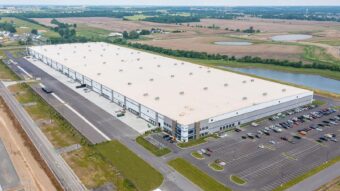Office rents are rising throughout the Ann Arbor, Michigan, market. And providing the fuel? Tech companies.
That’s the takeaway from the a recent Tech-30 report from CBRE, which found that the rise of tech companies has helped boost office rents in Ann Arbor by more than 11 percent the last two years.
CBRE’s Tech-30 report measures the tech industry’s impact on office rents in the 30 biggest technology markets in the United States and Canada. And in few markets, has the impact been as strong as in Ann Arbor.
Average office asking rents in Ann Arbor rose 11.1 percent to $24.32 a square foot from the second quarter of 2016 to the second quarter of 2018. Ann Arbor has outpaced the wider Detroit market by quite a bit.
In the Detroit market overall, office rents increased 6.3 percent during the same time period. Ann Arbor rents represent a 28 percent premium over the overall Detroit market’s average asking rate of $18.94 a square foot.
Technology companies, though, have been a positive for the entire Detroit market. CBRE reports that tech jobs have grown steadily here, with Detroit adding almost 20,000 tech jobs since 2009. Overall, the Detroit market now boasts 56,112 tech jobs. CBRE says that these jobs have expanded at a 5.4 percent rate from 2015 through 2017.
“We have seen a lot of activity and growth in our tech sector in recent years,” said Tim Guest, vice president with CBRE, in a written statement. “In particular, Ann Arbor has been a top target for internet security firms and autonomous vehicle software companies, as the tech firms want to be close to the talent provided by the University of Michigan and the collaboration opportunities in the surrounding business community.”
Colin Yasukochi, director of research and analysis for CBRE in the San Francisco bay area, said that tech companies should continue to expand in the coming years, seeking out new office space. This could be a benefit for cities dotting the Midwest as these firms look for new space outside their traditional headquarters areas.
“Large tech company expansion into smaller markets will help foster innovation clusters, further boosting job creating and creating additional office demand,” Yasukochi said in a statement.



